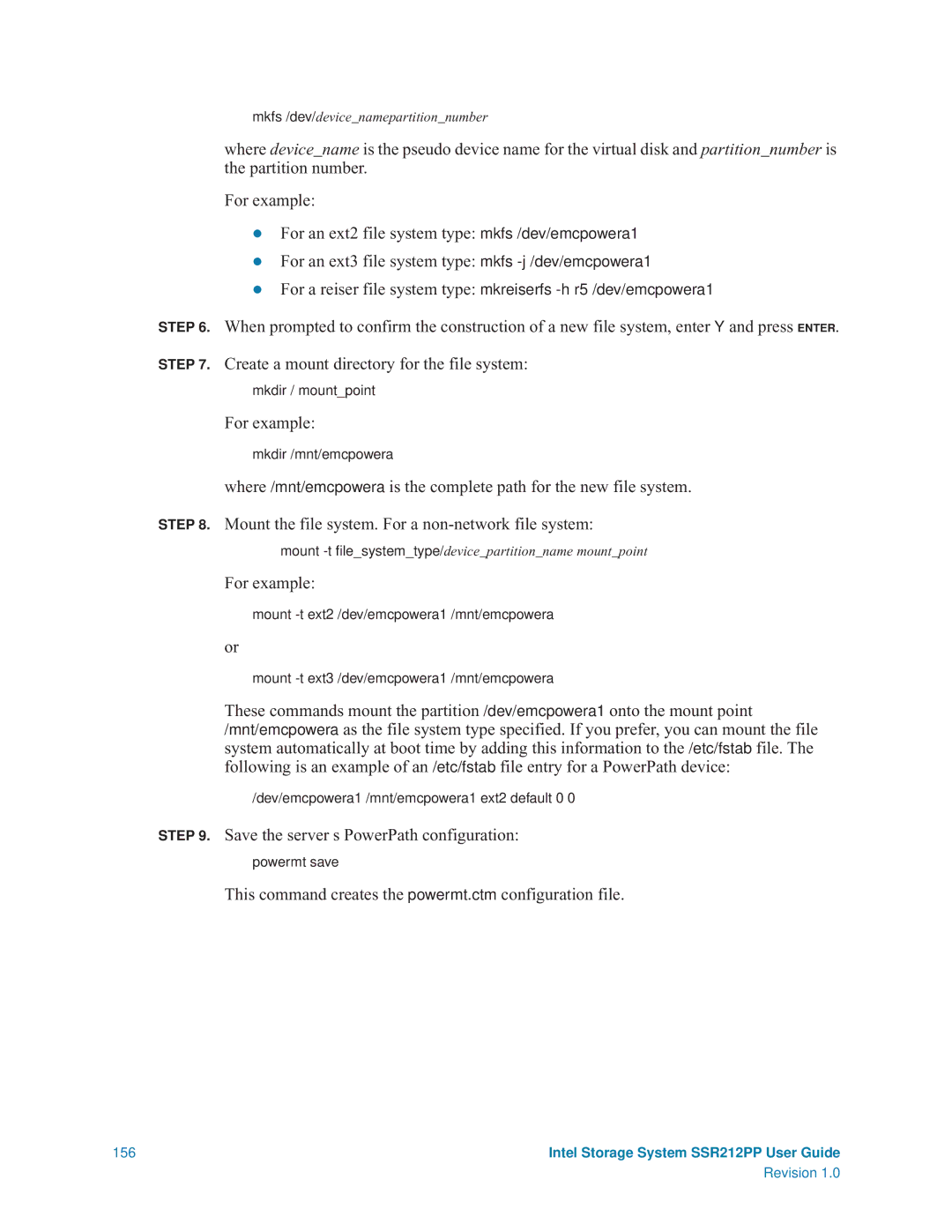mkfs /dev/device_namepartition_number
where device_name is the pseudo device name for the virtual disk and partition_number is the partition number.
For example:
For an ext2 file system type: mkfs /dev/emcpowera1
For an ext3 file system type: mkfs
For a reiser file system type: mkreiserfs
STEP 6. When prompted to confirm the construction of a new file system, enter Y and press ENTER. STEP 7. Create a mount directory for the file system:
mkdir / mount_point
For example:
mkdir /mnt/emcpowera
where /mnt/emcpowera is the complete path for the new file system. STEP 8. Mount the file system. For a
mount
For example:
mount
or
mount
These commands mount the partition /dev/emcpowera1 onto the mount point /mnt/emcpowera as the file system type specified. If you prefer, you can mount the file system automatically at boot time by adding this information to the /etc/fstab file. The following is an example of an /etc/fstab file entry for a PowerPath device:
/dev/emcpowera1 /mnt/emcpowera1 ext2 default 0 0
STEP 9. Save the server s PowerPath configuration:
powermt save
This command creates the powermt.ctm configuration file.
156 | Intel Storage System SSR212PP User Guide |
| Revision 1.0 |
